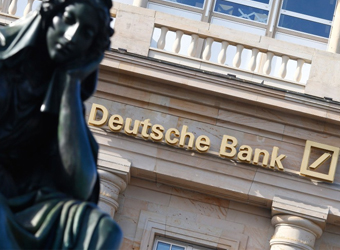The near-term outlook for Egypt is positive, bolstered by a growing foreign reserves, capital inflows, and improvement in its current account position, Deutsche Bank said in a report issued on Monday.
Egypt’s foreign reserves had reached $28.6 billion in April, yet the bank warns that sustained net inflows are needed to cover significant financing needs in financial year 2017-18 and financial year 2018-19. The bank expects Egypt’s GDP growth to come in at 3.9 percent for the first quarter of 2017.
The report expects inflation to come to about 20 percent by the end of 2017, partly on the back of the interest rate hike, which analysts say will take some time to take effect. If this does happen, GDP growth is projected to continue at a pace of 4 percent.
“We expect inflation to come off to approximately 20% by end-2017, our forecast is less optimistic than that of the IMF. We therefore do not see the CBE cutting rates in the near term from the current 16.75%.” the bank said.
Private sector inflows have exceeded expectations, Deutsche Bank said, referring to the $7 billion Egypt had attracted in both its eurobond issuances in January and May. Egypt’s risk premiums have diminished, the bank said.
DB analysts also find it remarkable that foreign inflows into Egypt’s debt market surged following the central bank’s move to raise interest rates by 200 bps. Foreign direct investment appears to have recovered, but still remain below its pre-2011 rates. The bank does believe that Zohr gas discover coming online in 2018 will help attract significant FDI.
On the fiscal side, the state’s take from taxes on goods and services is set to rise 41 percent in financial year 2017-18, making up 36 percent of total budget revenue, under the assumption that value-added tax will do most of the job, the bank added. However, tax revenue is likely to fall below the government’s projections. The DB report suggests that while energy subsidies are expected to decline in financial year 2017-18, fuel subsidies will remain at the same previous levels.
DB analysts further said that they believed Moody’s might consider upgrading Egypt’s ratings to B2 from B3 in their upcoming review on August 18 given the accelerated build-up of FX reserves and prospects of lowering fiscal deficit as per the draft budget plans. However, high inflation and risks to growth outlook might act as potential deterrents, they noted.
The analysts of the German bank believe Fitch is most likely to affirm Egypt’s ratings at B and at best might upgrade their outlook to Positive from Stable.



